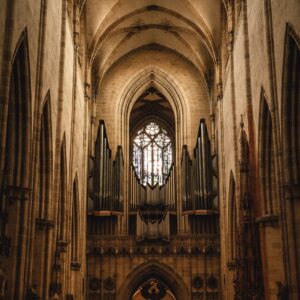
Disciples of Christ Jesus must demonstrate genuine willingness to understand the terms they use or hear others use in the service of the Lord.
It is not proper for educated Christians to use words they do not understand. Unfortunately, this is the situation in which many African Christians find themselves.
Words like church, prayer tower, pulpit, temple, cathedral, anointing, born again and so on are scripturally misunderstood by many.
In this message, I want us to discuss the differences between the words: “temple”, “cathedra” and “cathedral.”
We know that Solomon built a temple, according to 1 Kings Chapter Six, but he never built a cathedral.
The truth is that the word cathedral is not used in Scripture and it is not the same as temple.
The English word “temple”, according to the Merriam-Webster Dictionary, is derived from the Latin word, “templum” meaning “…sacred precinct, building consecrated to a deity,” of uncertain origin”.
This means the temple Solomon built was a building consecrated to God. It was the temple of God known in Greek as “ieron” or “naos.”
A cathedral, on the other hand, etymologically comes from the Latin word, “cathedra” which means the throne or seat of a bishop.
Cathedra was used in the Catholic Church in Europe. It was not a seat the bishop sat on during church meetings to worship God as many Pastors do today.
Historically, the bishop of the Catholic Church sat on the cathedra to decide or judge cases brought to him by the people in Rome.
A cathedral, therefore, in its strict sense, refers to a building in which the throne or seat of the bishop is placed.
This implies that when the seat is removed from the building, it ceases to be a cathedral but wherever it is placed becomes a cathedral.
You must be aware that the early apostles of Jesus Christ did not have cathedra to sit on to judge cases.
Today, many Charismatic church leaders in Ghana and other parts of Africa put up church buildings and name it cathedral. Clearly, this is done ignorantly.
We must learn to serve God and do things in the name of the Lord with knowledge and understanding.
By James Quansah
 clcgh.org Building The Capacity Of Christian Leaders, Equipping The Saints For The Work Of Ministry, Redirecting Straying Christians To The Sound Knowledge Of Christ
clcgh.org Building The Capacity Of Christian Leaders, Equipping The Saints For The Work Of Ministry, Redirecting Straying Christians To The Sound Knowledge Of Christ



